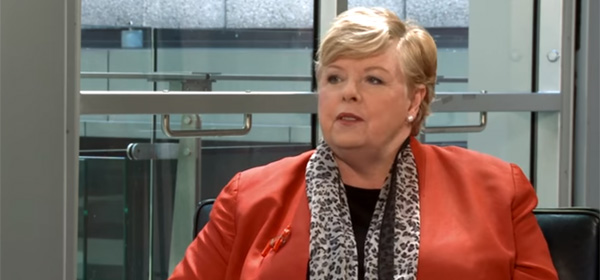There is a growing call for victims of family violence to be granted early access to super. Industry super fund HESTA, supported by community groups, is seeking from the Federal Government a change to superannuation rules.
HESTA CEO Debby Blakey wants to remove the financial barrier for women who need to leave a violent relationship.
“Finances are too often a barrier for women trying to leave a violent relationship and, unfortunately, financial support for survivors of family violence is grossly inadequate,” Ms Blakey said.
“While early access to super is currently possible to stop the bank selling your home, pay for a dependant’s funeral or get medical treatment under compassionate grounds, this is denied in instances of family violence. We think it’s entirely appropriate that super regulations extend compassion to victims and survivors of family violence to empower women with the financial means to escape abusive relationships.”
In order to maintain a level of funding for retirement, HESTA is proposing a new ruling for victims and survivors of family violence be granted access up to $10,000 under a new ruling. This should be an interim ‘band aid’ measure until such time as improved funding for financial and other victim support services is secured from all levels of government.
“We urgently need a nationally coordinated response to family violence. While it’s encouraging that the Victorian State Government now provides financial support of around $7000, having the financial capacity to leave a violent relationship shouldn’t depend on where you live in Australia,” Ms Blakey said.
The proposal is supported by Good Shepherd Microfinance Chair, Christine Nixon, who noted that financial constraints are often what stops women from leaving abusive relationships. “Their issues are complex but the common bind is always a real need for financial support to move forward,” Ms Nixon said.
“We endorse all efforts to shine a light on the inadequate assistance currently available to women and any attempts by the superannuation industry to make changes to early release conditions. Women facing financial exclusion are susceptible to predatory behaviour from money lenders, this only continues the spiral of financial abuse and exclusion.”
Financial counsellors also see firsthand that family violence and financial hardship are intertwined. Financial Counselling Australia CEO Fiona Guthrie noted that, “One of the many reasons women may stay trapped in a situation of family violence is to do with money – lack of access to crisis support and payments, or ongoing control by the other partner of money and economic opportunities (economic abuse). In the right circumstances, superannuation has an important role to play in helping women affected by family violence get back on their feet. We support this very sensible proposed policy response.”
Under the proposed rule change, anyone seeking early release of super would need to provide certification from a recognised family violence social worker or organisation that they do indeed need urgent access to money.
Read more at HESTA.com.au
Opinion: Super not the answer to every financial problem
Family violence is possibly one of the most abhorrent crimes there is – how can someone abuse the very people they are supposed to love most in the world. And yet, it happens, more often than we know. Women are often the victims, however, we know that men are also victims of abuse and violence at home, although they are less likely to seek assistance.
There is a definite need for more support services and increased funding to help men, women and of course, their children, escape the insidious social issue that is family violence. However, using super as a means to fund such an escape is a perilous and short-term solution. Indeed, as Ms Blakey points out, governments need to step up with assistance – and quickly.
Thanks to the largely-held viewpoint that super just ‘sits there’ for a long time, it’s easy to see why it has become the panacea for all financial hurdles. Whether it’s being suggested for funding first-home deposits or a financial vehicle to park proceeds from the sale of a family home, super is often seen as an easy option.
However, the fact that there are tight controls as to when and how early access to super can be granted, something which is refused more often than approved when applied for, is testament to the need to hold money in super for its intended purpose – to fund retirement.
While no one wants to see anyone trapped in an abusive relationship due to not having enough money to make the break, there is no promise that accessing super would indeed solve the problem. Perpetrators of family violence and abuse are cold and calculating, whittling away the self-worth of their victims. Often, men and women return to abusive relationships as it’s the only place they believe they have any value and that their abuser is the only person who will ever have them. Imagine then the ‘value’ that person will suddenly have if they have $10,000 in the bank?
Until such time that there are enough effective support services in place to help victims make the break emotionally, giving them access to money is unlikely to be enough to break the link with their abuser.
What do you think? Should access to super be granted as a short-term aid to help family violence victims?
If you or someone you know is affected by sexual assault or family violence, call 1800RESPECT on 1800 737 732 or visit www.1800RESPECT.org.au – in an emergency, call 000.
Related articles:
Tempted to raid your super?
Over 55 and homeless on the rise
What causes domestic violence?

